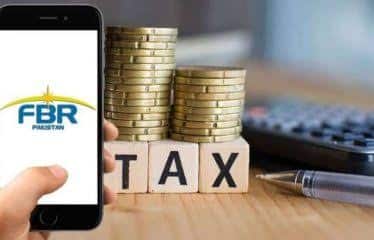In a significant effort to enhance tax compliance and increase government revenue, the government of Pakistan has announced plans to abolish the non-filer category from tax laws, introducing a series of strict restrictions on the activities of non-filers. This decision comes in response to alarming disparities in tax compliance, as indicated by recent data from the Federal Board of Revenue (FBR). The data reveals that while an impressive 94% of middle-income taxpayers adhere to tax regulations, only 29% of the wealthiest 1% do.
The government’s new strategy entails the gradual implementation of 15 stringent restrictions targeting non-filers. These measures aim to disincentivize non-compliance and encourage a broader base of tax contributors. Among the proposed restrictions is a ban on non-religious travel, which will significantly impact non-filers’ mobility. Additionally, a limit on annual cash withdrawals has been set at Rs30 million, which will be enforced by banks through directives from the State Bank of Pakistan. This initiative seeks to deter cheque-based cash withdrawals, which are often used to evade tax responsibilities.
Further, the government plans to prevent non-filers from engaging in significant financial transactions. Specifically, non-filers will be prohibited from purchasing properties or vehicles, investing in the stock market or mutual funds, and opening current bank accounts. This broad range of limitations is designed to restrict their economic activities and compel them to comply with tax regulations.
Another notable aspect of the plan includes increased scrutiny of asset purchases. Higher-income filers will be required to provide proof of income sources when buying properties, while lower-income filers must explain their income sources for any substantial purchases. These measures aim to enhance transparency and accountability within the tax system.
To reinforce these restrictions, the government will share information regarding non-filers with banks to limit cheque withdrawals and impose higher withholding tax rates on transactions involving non-filers. Furthermore, the government will act on properties reported at below-market value in tax returns, a provision that was initially introduced in 2018 but has yet to be implemented.
The 15 restrictions outlined by the government include:
- Non-Religious Travel Ban: Non-filers will be prohibited from undertaking non-religious travel.
- Cash Withdrawal Limit: Annual cash withdrawals for non-filers will be capped at Rs30 million.
- Asset Purchase Ban: Non-filers will be barred from purchasing properties or vehicles.
- Investment Restrictions: Non-filers will not be allowed to invest in the stock market and mutual funds.
- Current Account Limitations: Restrictions will be placed on the ability of non-filers to open current bank accounts.
- Higher Withholding Taxes: Non-filers will face higher tax rates on various transactions.
- Income Proof for Property Purchases: Higher-income filers will need to justify their income sources for property acquisitions.
- Explanations for Other Purchases: Lower-income filers must provide explanations for significant purchases.
- Data Sharing with Banks: Information on non-filers will be shared with banks to limit cheque withdrawals.
- Property Purchases Below Market Value: The government will purchase properties reported below market value in tax returns.
- Cheque Use Restrictions: There will be limitations on cheque usage for certain transactions.
- Transaction Bans: A gradual ban on 15 types of transactions for non-filers will be enforced.
- No Tax Exemptions: Non-filers will not qualify for any tax deductions or exemptions.
- Business Opportunity Limits: Non-filers will face restrictions on conducting business activities.
- Increased Scrutiny: Enhanced audits and scrutiny will be applied to non-filers.
This comprehensive approach reflects the government’s commitment to improving tax compliance and broadening the tax base, ultimately aiming to foster a more equitable and sustainable fiscal environment in Pakistan. As these measures are rolled out, it remains to be seen how they will affect both tax compliance rates and the overall economy.


